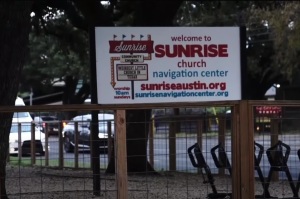European Society for the Study of Science and Theology: 'Religion is Something Beyond Knowledge'
2004 ESSST Meeting Held
A science and religion conference recently took place to treat ignorance and how it drives science and religion to search for wisdom.
The European Society for the Study of Science and Theology recently held its 10th annual meeting at the Institut Químic de Sarrià in the Universitat Ramon Llul in Barcelona, Spain, with the theme "Streams of Wisdom, Theology and Cultural Dynamics".
The conference mainly covered theoretical and intricate aspects of the dialogue between science and religion, such as truth, the application of modernity to science and religion, while some lecturers tried to treat real-world issues.
The Rev. Dr. Mariano Artigas, a Catholic priest and physicist from the University of Navarra in Pamplona, Spain, commenced the conference with speak on reliability of science and its cultural impact.
He gave warning against arrogance in both science and religion and insisted that we can never assure of the truth of our theories. He said that absolute assurance leads to dogmatism, mentioning the affair of Galileo, who tried to defend the Copernican theory in Rome in 1633.
According to Artigas, the presuppositions of empirical science about the rationality of nature, human ability to know nature and the values of science can lead to a philosophical meaning of science, which can help people understand the discipline’s theological relevance.
Other speakers found the subject of technology apt for highlighting both how much the science-and-religion dialogue has advanced and how far it has to go more.
"We are not necessarily knowing more, but doing more with knowledge than before,” Walter Christoff Zimmerli said. “The very definition of ignorance implies that there’s something beyond your knowledge and what you can know. That is defined as ‘religion'."
Many other issues, such as ideas of beauty and ecological responsibility, the recovery of torture survivors, food safety and food justice, and science, theology and compassionate nationhood in South Africa were also dealt with in this meeting.
In addition, the society awarded its annual prizes to German Biologist and Theologian Casper Söling, professor Giuseppe Tanzella-Nitti from Rome, and Marie Vejrup-Nielssen (26), who studies theology at the University of Aarhus, Denmark. Also, the society settled Iasi, Romania as the venue for next year’s conference.
This conference had around 200 attendants and was sponsored by Epson Ibérica & Fundación Epson, Fundacions IQS, Institut de Teologia Fonamental and Engineria La Salle, as well as 30 academic centres that participated in the conference via tele-conferencing and the Templeton Foundation.
ESSSAT is a scholarly, non-confessional organisation, based in Europe, which aims to promote the study of relationships between the natural sciences and theological views. It has members from almost every European country as well from other continents. It consists of members who have different confessional backgrounds, and may include believers as well as non-believers and atheists. In this organisation scientists, theologians, philosophers and historians try to work on a better understanding of the interactions between religion and science.




























